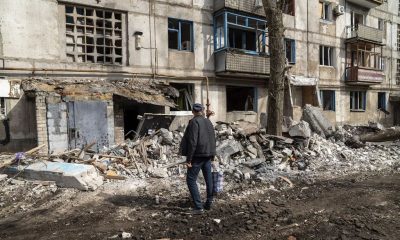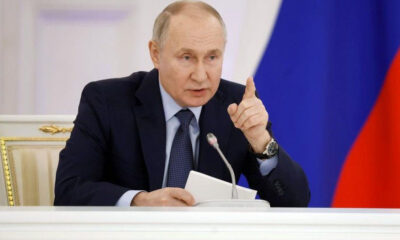International
‘Massive’ Russian attack causes Ukraine blackouts
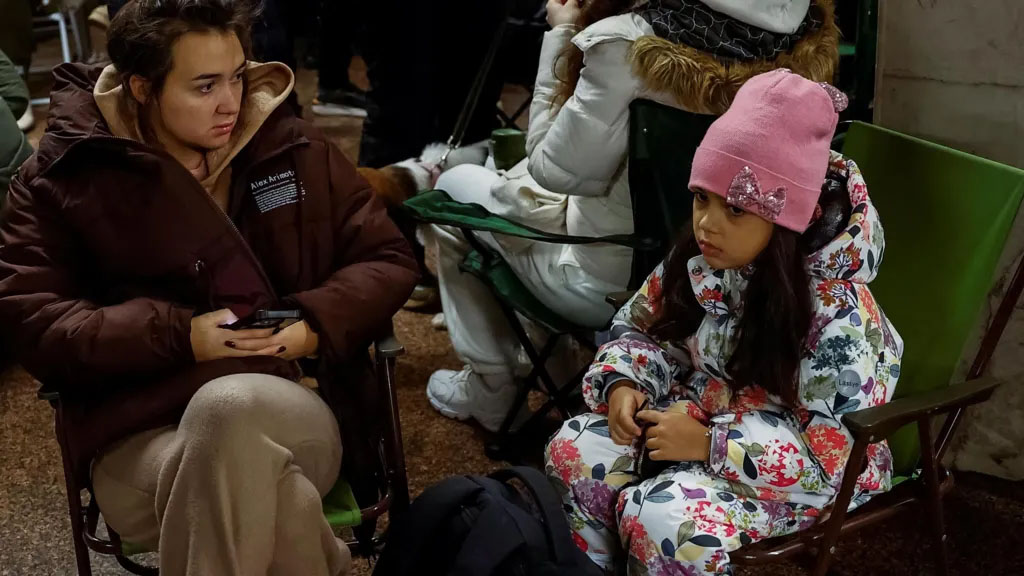
‘Massive’ Russian attack causes Ukraine blackouts
A “massive” Russian missile and drone attack has targeted power infrastructure across Ukraine, the country’s President Volodymyr Zelensky has said.
At least 10 people were killed in the strikes, which hit the capital, Kyiv, as well as multiple targets in several regions including Donetsk, Lviv and Odesa.
Ukraine’s largest private energy company, DTEK, said its thermal energy plants had suffered “significant damage”, resulting in blackouts.
The country’s state-owned energy operator, Ukrenergo, says it will enforce “restriction measures” for the whole of Ukraine on Monday.
The co-ordinated assault overnight on Saturday was largest of its kind since early September, according to authorities and local media.
In total, around 120 missiles and 90 drones were launched, Zelensky said on Telegram.
“Peaceful cities, sleeping civilians” and “critical infrastructure” were targeted, Ukraine’s foreign minister Andrii Sybiha said.
The Russian defence ministry reported that it had hit all its targets, saying that its attack was on “essential energy infrastructure supporting the Ukrainian military-industrial complex”.
READ ALSO:
- Biden allows Ukraine to strike inside Russia with missiles
- Labour Party suspends senator over alleged misconduct, anti-party activities
- Gunmen abduct NDLEA officers in Delta
“Russian terrorists once again want to scare us with cold and lack of light,” was how President Zelensky put it.
Of course, anything that seeks to deny power to factories producing weaponry inevitably harms civilians too – indirectly, through the loss of electricity and frequently water, and directly, as missiles or fragments of missiles rain down from the sky.
The governor of the Odesa region, Oleh Kiper, said there had also been disruptions to heat and water supplies, although the latter was gradually being restored. Hospitals and other critical infrastructure were operating using generators.
Further east, the city of Mykolaiv was also hit. The region’s leader, Vitaliy Kim, told the BBC that the people were resilient there, despite being attacked regularly.
“People are in a good shape and want to defend themselves. We do not want to lose our homes,” he said.
In Kyiv, fragments from intercepted missiles and drones fell in several places, but there were no reports of injuries.
The attack was the eighth large-scale one targeting Ukraine’s energy facilities this year, DTEK said in a statement, adding that its plants had been attacked more than 190 times since the start of Russia’s full-scale invasion of Ukraine in February 2022.
Ukrainian officials fear the most recent strike could signal another concerted Russian attempt to deplete the power grid as winter arrives.
Having already endured two-and-a-half bitter winters since Russia’s full-scale invasion in February 2022, Ukrainians are bracing themselves for another.
“Here we go again” were the words of an official at one of Ukraine’s private energy companies, summing up the mood across the country on Sunday.
Through ingenuity and sheer determination, Ukraine has managed to survive each winter assault so far. There is every chance it will again, although its generation capacity is now less than a half of what it was in February 2022.
Poland, Ukraine’s neighbour to the west, scrambled fighter jets to patrol its own airspace as a security precaution.
“Due to a massive attack by Russia, which is carrying out strikes using cruise missiles, ballistic missiles and drones against sites located, among other places, in western Ukraine, operations by Polish and allied aircraft have begun,” Poland’s Operational Command said.
Hungary, which neighbours both Ukraine and Poland, was also on alert after drone attacks struck the westernmost Subcarpathian region – about 20km (12 miles) from the Hungarian border.
The country’s defence minister said the “situation is being monitored continuously”.
These latest attacks come as both Ukraine and Russia continue to try to anticipate how US President-elect Donald Trump will act once his administration takes power in January.
Trump has consistently said his priority is to end the war and what he describes as a drain on US resources in the form of military aid to Kyiv. He has not said how.
The US has been the greatest supplier of arms to Ukraine. Between the start of the war and the end of June 2024, it delivered or committed to send weapons and equipment worth $55.5bn (£41.5bn), according to the Kiel Institute for the World Economy, a German research organisation.
There are fears in Kyiv that it may come under pressure to negotiate an end to the war that may favour Russia’s advances – Moscow continues to control a large swathe of Ukrainian territory.
Zelensky has said he is certain the war with Russia will “end sooner” than it otherwise would have under the new Trump presidency.
Kremlin spokesman Dmitry Peskov recently told Russian state media of “positive” signals from the incoming US administration. But Russia has denied that a phone call took place in which Donald Trump reportedly warned the Russian president against escalating the war.
However, for all the talk of the possible changes coming when Donald Trump enters the White House, Sunday’s attacks seem to indicate that, for now at least, the war’s grim realities are not changing.
Meanwhile, the leader of Germany – another Ukrainian ally – has defended a phone call he had with Putin on Friday, something Kyiv criticised as an attempt at appeasement.
“It was important to tell him [Putin] that he should not count on the support of Germany, Europe and many others in the world for Ukraine waning, but that it is now also up to him to ensure that the war comes to an end,” Olaf Scholz said on Sunday.
He added that the Russian president had given no indication of a shift in his thinking on the war.
‘Massive’ Russian attack causes Ukraine blackouts
BBC
International
AI will replace doctors, teachers, others in 10 years – Bill Gates
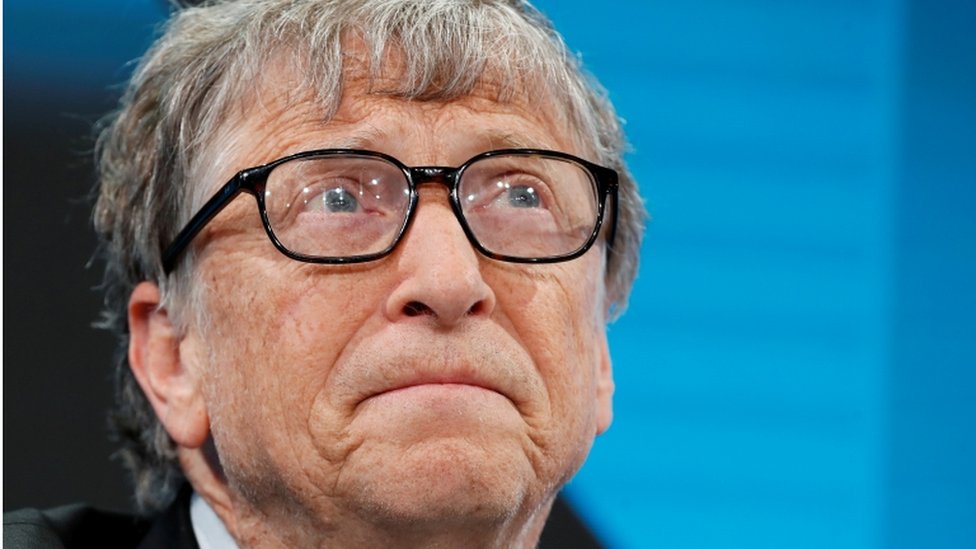
AI will replace doctors, teachers, others in 10 years – Bill Gates
Bill Gates, a co-founder of Microsoft, has claimed that improvements in artificial intelligence (AI) over the next decade may render humans superfluous for the majority of work.
In a recent interview with comedian Jimmy Fallon on NBC’s The Tonight Show in February, the billionaire philanthropist discussed how AI may take over many facets of life and business.
Gates remarked that expertise is currently “rare”, emphasising the continuous reliance on human specialists in industries such as medicine and education.
For example, we continue to rely on highly trained individuals, such as “a great doctor” or “a great teacher”, whose knowledge cannot be simply replaced by AI.
However, “with AI, over the next decade, that will become free, commonplace — great medical advice, great tutoring,” Gates said.
READ ALSO:
- Senate seeks FG’s immediate intervention to slash data prices
- Reno Omokri: Nigeria gives more opportunities than US, Britain, Canada
- Driver remanded for causing Osun varsity students’ death
In other words, Gates believes that the world is entering a new era of “free intelligence”, as he described in a recent interview with Harvard University professor and happiness specialist Arthur Brooks.
According to Gates, this transition will result in rapid breakthroughs in AI-powered technology, making them more accessible and affecting almost every part of our lives.
These breakthroughs will vary from more effective treatments and diagnoses to widely available AI instructors and virtual assistants.
“It’s very profound and even a little bit scary — because it’s happening very quickly, and there is no upper bound,” Gates told Brooks.
The discussion of how humans will fit into an AI-powered future continues.
Some analysts suggest that artificial intelligence will improve human productivity rather than completely replacing labour, hence driving economic growth and creating new jobs.
However, Microsoft AI CEO Mustafa Suleyman cautions that technological improvements in the coming years will disrupt the nature of most occupations across nearly all industries, potentially exerting a “hugely destabilising” influence on the workforce.
AI will replace doctors, teachers, others in 10 years – Bill Gates
International
Poland suspends migrants’ right to apply for asylum
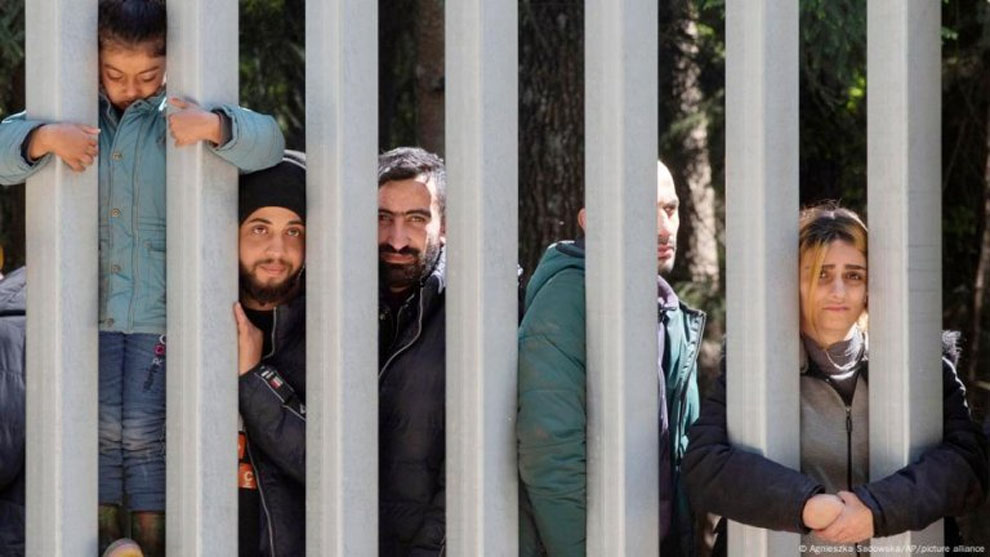
Poland suspends migrants’ right to apply for asylum
Poland has temporarily suspended the right of migrants arriving in Poland via its border with Belarus to apply for asylum.
Prime Minister Donald Tusk announced it would be happening after the controversial bill, which will allow Polish authorities to suspend this right for up to 60 days at a time, was signed into law by President Andrzej Duda.
Tusk had said it would be adopted “without a moment’s delay” while Duda said the changes were needed to strengthen security on the country’s borders.
But the law has been criticized by rights groups including Human Rights Watch, which said the EU should take legal action against Poland if it was implemented.
The group urged the country’s parliament last month to reject the bill, saying it “flies in the face of Poland’s international and EU obligations” and could “effectively completely seal off the Poland-Belarus border, where Polish authorities already engage in unlawful and abusive pushbacks”.
READ ALSO:
- Trump slaps 25% tariffs on car imports to US
- Reps pass bill to strip Vice President, governors, deputies of immunity
- Businessman collapses in court during trial over $578,000 cash seizure
The government said previously the suspension would only be applied temporarily to people who pose a threat to state security, for example large groups of aggressive migrants trying to storm the border.
Exemptions will be made for unaccompanied minors, pregnant women, the elderly or unwell, anyone exposed to “real risk of serious harm” by being returned and citizens of countries accused of conducting the instrumentalization of migration – like Belarus
Tusk has dismissed criticism from human rights groups.
“Nobody is talking about violating human rights, the right to asylum, we are talking about not granting applications to people who illegally cross the border in groups organised by Lukashenko,” he said in October.
Since 2021, Poland, Lithuania, Latvia and Finland have seen a huge increase in the number of people crossing into their countries illegally from Belarus and Russia.
Polish authorities have sent thousands of troops and border guards to police its border with Belarus and built a 5.5-metre-high steel fence along 186 km of the frontier where at times several thousand migrants have been left stranded.
Rights groups estimate more than one hundred people have died on the borders between Belarus and Poland, Lithuania and Latvia since 2021.
EU eastern flank countries and the European Commission have accused the Belarusian and Russian authorities of weaponising migration to create a new route into the EU to destabilize the bloc.
Poland suspends migrants’ right to apply for asylum
BBC
International
Trump slaps 25% tariffs on car imports to US

Trump slaps 25% tariffs on car imports to US
US President Donald Trump has slapped new 25% import duties on autos and car parts entering the US, threatening to escalate the global trade war.
Trump said the additional duties would go into effect on April 2, with levies on businesses importing autos beginning the next day. Charges for parts are scheduled to begin in May or later.
The president stated that the proposal would result in “tremendous growth” for the auto industry, saying that it would boost jobs and investment in the United States.
However, analysts believe the measure will result in a temporary stoppage of significant US vehicle production, higher costs, and strained relations with allies.
Last year, the US imported approximately eight million cars, accounting for approximately $240 billion (£186 billion) in trade and roughly half of total sales.
Mexico is the top foreign supplier of cars to the US, followed by South Korea, Japan, Canada, and Germany.
Trump’s latest move could disrupt global car trade and supply chains. Many US car companies have operations in Mexico and Canada under the terms of the long-standing free trade agreement.
READ ALSO:
- Reps pass bill to strip Vice President, governors, deputies of immunity
- Businessman collapses in court during trial over $578,000 cash seizure
- Fire guts Onitsha market, many shops, goods destroyed
However, the new taxes on parts from Canada and Mexico are exempt until US Customs and Border Patrol establish a method to assess the duties, according to the White House. Every day, billions of dollars in goods cross borders between neighbouring countries.
On Wednesday, General Motors’ stock fell almost 3%. The sell-off spread to other firms, including Ford, following the president’s speech that reaffirmed the tariffs.
When asked during a news conference if there was any chance he would change his mind, Trump responded no, later adding, “This is permanent.”
“If you build your car in the United States there is no tariff,” he said.
Japanese Prime Minister Shigeru Ishiba stated that his government would consider all measures in reaction to the taxes.
Japan, home to several major automakers, is the world’s second-largest vehicle exporter.
Japanese automakers’ shares, including Toyota, Nissan, and Honda, sank in early trading in Tokyo.
A tariff is a levy on imports levied by the government and paid by the company importing the goods.
Trump has welcomed the instrument, intending to use it to target a wide range of imported goods as part of a larger effort to defend American industries and increase production.
However, while the rules can protect domestic industries, they also increase costs for businesses that rely on imported parts, such as carmakers.
According to the Anderson Economic Group, 25% tariffs on parts from Mexico and Canada alone could increase the cost of a car by $4,000 to $10,000, depending on the type.
Trump slaps 25% tariffs on car imports to US
-

 metro2 days ago
metro2 days agoAttack on Mufty of Ilorin: Onikijipa Family Charges Stakeholders to Call Sheikh Habibullahi Al-Ilory to Order
-

 Health2 days ago
Health2 days agoNigerian doctor pioneers W’Africa first robotic prostate cancer surgery
-

 metro2 days ago
metro2 days agoFubara: Supreme Court reacts to photo of Justice Agim with Wike
-

 metro2 days ago
metro2 days agoUNIOSUN mourns as 5 students die in auto crash
-

 metro1 day ago
metro1 day agoHow ritualists, native doctor drugged, murdered underage sisters in PH – Police
-

 International1 day ago
International1 day agoCanada removes bonus ranking points for job offers in Express Entry system
-

 metro5 hours ago
metro5 hours agoJUST-IN: Ex-Oyo gov Ajimobi’s first child Bisola dies At 42
-

 metro2 days ago
metro2 days agoAgain Obasanjo accuses federal lawmakers of bribery

